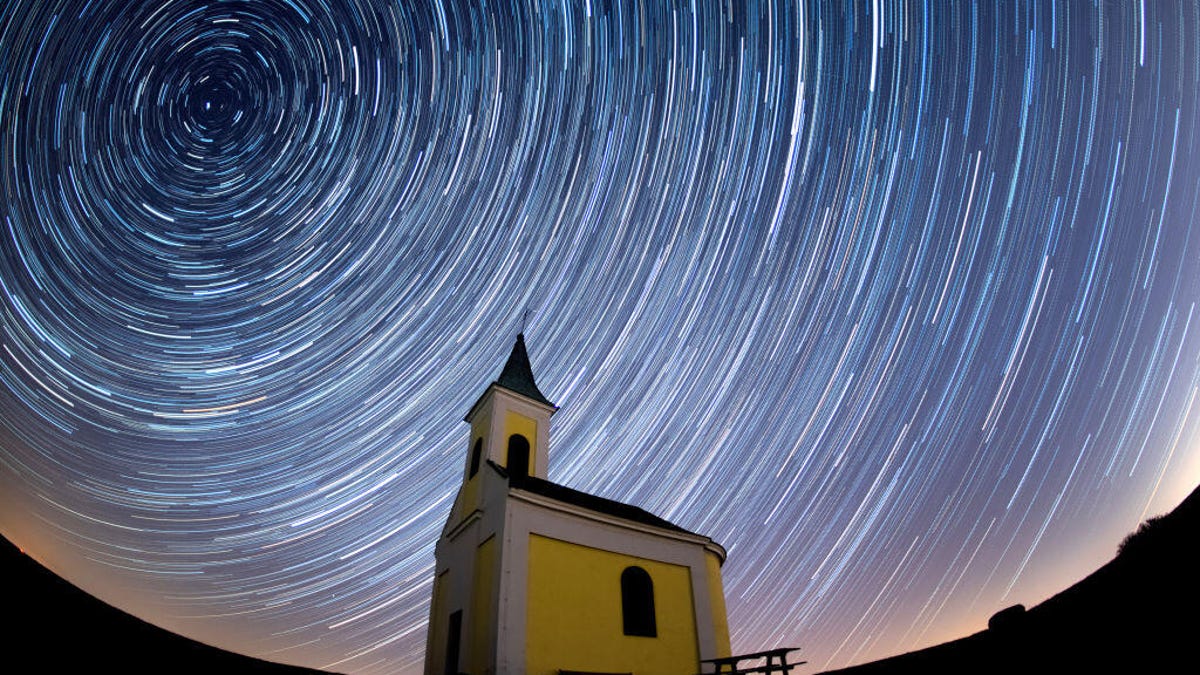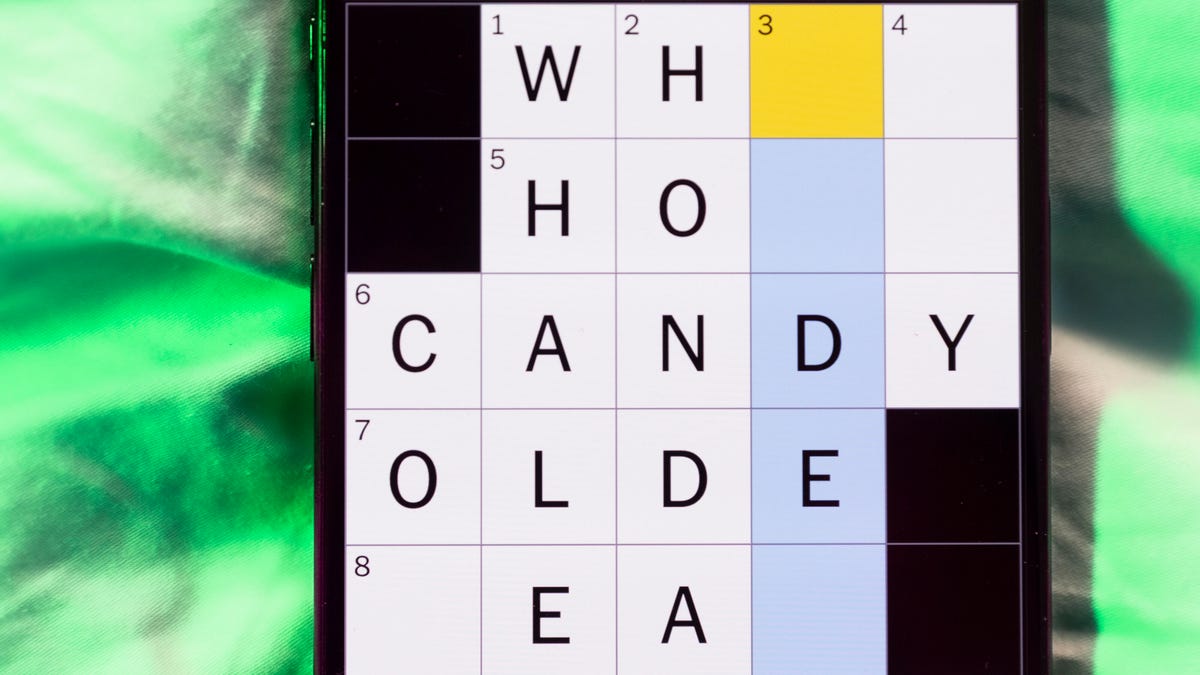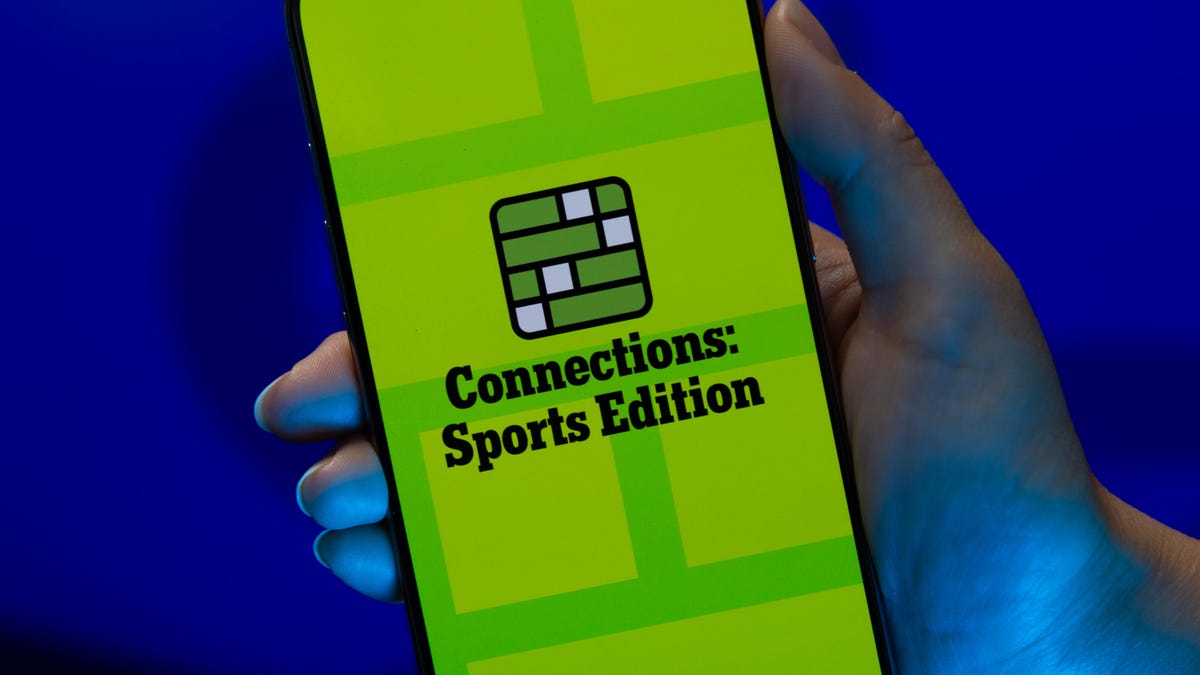Technologies
2025 Is a Year Full of Meteor Showers: A Big One Arrives Next Week
You don’t need to pay for a streaming service to watch a sky full of shooting stars.

2025 includes a full schedule of meteor showers. They come around every year like clockwork and that means planning shooting star trips can be done months in advance. Here’s a look at what’s happening when, and how you can watch.
Tips for watching
To have the best odds of seeing the most meteors during any given shower, the first advice is to get as far away from the big city as logistically possible — and that also applies to suburbanites. Light pollution is the enemy of space viewing and most meteor showers are barely visible in the suburbs, let alone a big city. From there, you’ll want to find the radiant — also known as the point from which the meteor shower appears to originate — and then keep your eyes pointed in that direction. The moon’s light can also be a negative factor, but since meteor showers occur on specific days, it’s up to nature as to whether or not moonlight will affect viewing.
Lyrids
When: Apr. 15 to Apr. 30
Peak date: Apr. 21 to 22
Maximum meteor rate: 18 meteors per hour
Radiant: Lyra
Things pick up again in April with the Lyrids meteor shower. Its radiant is Lyra, which will rise out of the eastern sky every night during its run. This one is a little bigger than most, having up to 18 meteors per hour. Earth runs through the C/1861 G1 Thatcher comet every April to bring this shower to its citizens. Interestingly, meteors from Lyrids tend to not have trails but can produce some pretty bright fireballs.
Eta Aquariids
When: Apr. 20 to May 21
Peak date: May 3 to 4
Maximum meteor rate: 50 meteors per hour
Radiant: Aquarius
The 1P/Halley, famously known as Halley’s Comet, is responsible for the Eta Aquariids, and it’s the biggest meteor shower to occur during spring with up to 50 meteors per hour. The only downside is that its radiant, Aquarius, doesn’t rise out of the southeastern sky until around 4 a.m. local time, meaning you’ll have to wake up very early or stay up super late to catch it. On the plus side, the moon will have set by then, meaning the moon won’t obstruct the view for this meteor shower.
Alpha Capricornids
When: July 12 to Aug. 12
Peak date: July 29 to 30
Maximum meteor rate: 5 meteors per hour
Radiant: Capricornus
Alpha Capricornids is a minor meteor shower that comes from the 169P/NEAT comet. It’s not a strong shower, but it is notable for producing some rather large fireballs. It’s also equally visible in the Southern and Northern Hemispheres. The radiant for this one is Capricornus, which streaks through the south sky and will be visible all night during its peak. Fortunately, the moon won’t be too full, so it won’t obstruct the view too much.
Southern delta Aquariids
When: July 28 to Aug. 12
Peak date: July 29 to 30
Maximum meteor rate: 25 meteors per hour
Radiant: Aquarius
Southern delta Aquariids often overshadows the Alpha Capricornids. This meteor shower peaks early, just a day or two after it officially starts, and then tails off through mid-August. Its early peak puts it on the same day as Alpha Capricornids, so if you see a shooting star on July 29 or 30, it might have come from either one. The radiant for this one is Aquarius, which is right next to Capricornus, making the two showers a fine pairing. Researchers aren’t 100% certain which comet gives us the Southern delta Aquariids, although the best guess right now is 96P/Machholz.
Perseids
When: July 17 to Aug. 23
Peak date: Aug. 12 to 13
Maximum meteor rate: 100 meteors per hour
Radiant: Perseus
Perseids is one of the premier space events that takes place during the summer. It comes from the 109P/Swift-Tuttle comet and is one of the most consistently busy meteor showers of the year. Plus, it takes place over the summer, which is perfect meteor shower weather. The radiant is Perseus, which rises out of the northeastern sky relatively early in the evening and stays up all night. The only downside is that the moon will be almost full during Perseids’ peak in 2025, making it more difficult to see the smaller meteors.
Southern Taurids
When: Sept. 23 to Nov. 4
Peak date: Oct. 10 to 11
Maximum meteor rate: 5 meteors per hour
Radiant: Taurus
Southern Taurids is one of the longest-lasting meteor showers of the year lasting well over a month. It’s not a particularly active meteor shower, but since it takes place during several other meteor showers, you may spot one of these while looking for another one. The 2P/Encke comet fuels this one and it peaks a couple of weeks away from Halloween. This one is paired with the Northern Taurids to make the Taurids meteor shower. However, they peak on different days so they’re often listed as separate meteor showers.
Orionids
When: Oct. 2 to Nov. 12
Peak date: Oct. 22 to 23
Maximum meteor rate: 20 meteors per hour
Radiant: Orion
Orionids is a reasonably active meteor shower that happens mostly during October. It also has the distinction of coming from the famous Halley’s Comet just like the Eta Aquariids shower. Unlike Eta Aquariids, the Orionids come out of the Orion constellation, which rises out of the eastern sky in October. Also, the moon will be virtually new, so it’ll have one of the darkest skies of any meteor shower this year.
Draconids
When: Oct. 6 to Oct. 10
Peak date: Oct. 8
Maximum meteor rate: 10 meteors per hour
Radiant: Draco
Draconids is a minor meteor shower and the shortest one on the list, lasting for all of four days. It hails from the 21/P Giacobini-Zimmer comet and has a fairly decent peak at around 10 meteors per hour. The peak occurs just two days after it starts and then the meteor shower ends two days later. The radiant for Draconids is Draco, which is between the Big Dipper and Little Dipper, making it relatively easy to find in the night sky.
Northern Taurids
When: Oct. 13 to Dec. 1
Peak date: Nov. 8 to 9
Maximum meteor rate: 5 meteors per hour
Radiant: Taurus
Northern Taurids is the other half of the Taurids meteor shower and this one lasts even longer, going from the middle of October all the way until December. It peaks about halfway through its run on Nov. 8, which is a few weeks later than its southern counterpart. Otherwise, the two are virtually identical. They are both fueled by the 2P/Encke comet and at their best produce around five meteors per hour. For now, researchers believe that this shower comes from a different segment of the Encke comet trail, which is why it’s often listed separately from its southern cousin.
Leonids
When: Nov. 3 to Dec. 2
Peak date: Nov. 16 to 17
Maximum meteor rate: 15 meteors per hour
Radiant: Leo
Just a few days after the Northern Taurids peaks, the Leonids shower will also peak. Created by the 55P/Tempel-Tuttle comet, Leonids will come from the Leo constellation, which rises in the eastern sky right around 2 a.m. local time for most of its run. This is a bigger meteor shower than the Taurids but a smaller shower than the Orionids. Since all four of them intersect during the first week of November, it may be tough to tell which meteor shower a shooting star comes from. This is especially true since Taurus, Leo, and Orion are all in the eastern sky at this time of year. Leonids often has fast, bright meteors that leave a trail, which may be the only way to differentiate a Leonids meteor from the other three showers.
Geminids
When: Dec. 4 to Dec. 20
Peak date: Dec. 14 to 15
Maximum meteor rate: 120 meteors per hour
Radiant: Gemini
Geminids is one of the biggest meteor showers of the year, and it peaks less than two weeks away from Christmas. It’s generated by the 3200 Phaethon comet and can show as many as 120 meteors per hour in the right conditions. Geminids is best known for its brighter, slower-moving meteors, making them easier to see in brighter areas like cities or suburbs. It takes place during the cold season, but it can put on quite a show if viewed from outside the big city.
Ursids
When: Dec. 17 to Dec. 26
Peak date: Dec. 22 to 23
Maximum meteor rate: 10 meteors per hour
Radiant: The Little Dipper
Ursids begins right after the peak of Geminids and continues until the day after Christmas. Since Geminids ends before Christmas, it is statistically likely that if you’ve ever watched a Christmas movie that has a shooting star, it likely came from Ursids. The shower peaks on the evening of Dec. 22 from the Little Dipper, which is readily visible in the night sky for most of the evening. Much like Draconids, it disappears almost as fast as it shows up, lasting only nine days in total.
Quadrantids
When:: Dec. 12, 2025 to Jan. 12, 2026
Peak date: Jan. 3 to 4, 2026
Maximum meteor rate: 120 meteors per hour
Radiant: The Big Dipper
The year ends the same way it begins with the Quandrantids meteor shower. It starts in early December and wraps around to the New Year. Thus, while it does have the distinction of being the only meteor shower that occurs twice a year, the peak is always in the first few days of January. Otherwise, it’s the same meteor shower as the Quadrantids listed above. So, we’ll use this space to deliver a fun fact. Most meteor showers are fueled by comets, chunks of ice floating through the universe that leave long trails that, as Earth moves through them, create meteors. However, Quadrantids is fueled by 2003 EH, which is an asteroid and not a comet. Researchers believe that 2003 EH is potentially a comet that died out and became an asteroid.
Technologies
Verum Messenger Turns Five and Launches Offline Messaging on iPhone
Verum Messenger Turns Five and Launches Offline Messaging on iPhone

Verum Messenger has marked its fifth anniversary with the release of a new feature that enables users to exchange messages without an internet connection.
The update, now available on iPhone, allows devices to communicate directly through a decentralized peer-to-peer architecture, bypassing servers, mobile networks and Wi-Fi. According to the company, messages are transmitted securely without relying on traditional internet infrastructure.
Unlike most offline communication tools that depend on Bluetooth, Verum’s approach uses encrypted device-to-device technology designed to operate independently of centralized systems.
Founded five years ago, Verum Messenger is positioned as a privacy-first platform. The app does not require a phone number or email address for registration and generates encryption keys locally on the user’s device. The company states that user data and message content are not stored on centralized servers.
Over time, Verum has expanded beyond messaging to include features such as encrypted calls, screenshot and screen-recording protection, self-destructing messages, anonymous email, a built-in VPN, eSIM connectivity and on-device AI tools.
The offline messaging update reflects a broader push toward more resilient communication tools, particularly as concerns over network reliability, censorship and digital surveillance continue to grow.
Technologies
Today’s NYT Mini Crossword Answers for Monday, Feb. 2
Here are the answers for The New York Times Mini Crossword for Feb. 2

Looking for the most recent Mini Crossword answer? There are some tough clues today. Click here for today’s Mini Crossword hints, as well as our daily answers and hints for The New York Times Wordle, Strands, Connections and Connections: Sports Edition puzzles.
Need some help with today’s Mini Crossword? Read on. And if you could use some hints and guidance for daily solving, check out our Mini Crossword tips.
If you’re looking for today’s Wordle, Connections, Connections: Sports Edition and Strands answers, you can visit CNET’s NYT puzzle hints page.
Read more: Tips and Tricks for Solving The New York Times Mini Crossword
Let’s get to those Mini Crossword clues and answers.
Mini across clues and answers
1A clue: Rock band with albums like «High Voltage» and «Flick of the Switch»
Answer: ACDC
5A clue: Stuck doing the same old, same old
Answer: INARUT
7A clue: Burning up
Answer: ONFIRE
8A clue: -tion, for one
Answer: SUFFIX
9A clue: Jared of 2025’s «Tron: Ares»
Answer: LETO
Mini down clues and answers
1D clue: Declare void, as a marriage
Answer: ANNUL
2D clue: ___ macchiato (espresso drink)
Answer: CAFFE
3D clue: Begin to veer off the road, say
Answer: DRIFT
4D clue: Odd little trinket
Answer: CURIO
5D clue: What Apple smartphones run on
Answer: IOS
6D clue: ___-Mex cuisine
Answer: TEX
Don’t miss any of our unbiased tech content and lab-based reviews. Add CNET as a preferred Google source.
Technologies
Today’s NYT Connections: Sports Edition Hints and Answers for Feb. 2, #497
Here are hints and the answers for the NYT Connections: Sports Edition puzzle for Feb. 2, No. 497.

Looking for the most recent regular Connections answers? Click here for today’s Connections hints, as well as our daily answers and hints for The New York Times Mini Crossword, Wordle and Strands puzzles.
Today’s Connections: Sports Edition is a tough one. It helps to know a lot about two distinct locations and their sports teams. If you’re struggling with today’s puzzle but still want to solve it, read on for hints and the answers.
Connections: Sports Edition is published by The Athletic, the subscription-based sports journalism site owned by The Times. It doesn’t appear in the NYT Games app, but it does in The Athletic’s own app. Or you can play it for free online.
Read more: NYT Connections: Sports Edition Puzzle Comes Out of Beta
Hints for today’s Connections: Sports Edition groups
Here are four hints for the groupings in today’s Connections: Sports Edition puzzle, ranked from the easiest yellow group to the tough (and sometimes bizarre) purple group.
Yellow group hint: Lone Star State.
Green group hint: Think of the Arch.
Blue group hint: You put cereal in this.
Purple group hint: Not four or six.
Answers for today’s Connections: Sports Edition groups
Yellow group: Texas college teams.
Green group: St. Louis teams.
Blue group: Can be followed by «bowl.»
Purple group: ____ five.
Read more: Wordle Cheat Sheet: Here Are the Most Popular Letters Used in English Words
What are today’s Connections: Sports Edition answers?
The yellow words in today’s Connections
The theme is Texas college teams. The four answers are Aggies, Cougars, Horned Frogs and Longhorns.
The green words in today’s Connections
The theme is St. Louis teams. The four answers are Billikens, Vlues, Cardinals and St. Louis City.
The blue words in today’s Connections
The theme is can be followed by «bowl.» The four answers are pro, senior, shrine and super.
The purple words in today’s Connections
The theme is ____ five. The four answers are fab, fierce, high and starting.
Don’t miss any of our unbiased tech content and lab-based reviews. Add CNET as a preferred Google source.
-

 Technologies3 года ago
Technologies3 года agoTech Companies Need to Be Held Accountable for Security, Experts Say
-

 Technologies3 года ago
Technologies3 года agoBest Handheld Game Console in 2023
-

 Technologies3 года ago
Technologies3 года agoTighten Up Your VR Game With the Best Head Straps for Quest 2
-

 Technologies4 года ago
Technologies4 года agoBlack Friday 2021: The best deals on TVs, headphones, kitchenware, and more
-

 Technologies5 лет ago
Technologies5 лет agoGoogle to require vaccinations as Silicon Valley rethinks return-to-office policies
-

 Technologies5 лет ago
Technologies5 лет agoVerum, Wickr and Threema: next generation secured messengers
-

 Technologies4 года ago
Technologies4 года agoOlivia Harlan Dekker for Verum Messenger
-

 Technologies4 года ago
Technologies4 года agoiPhone 13 event: How to watch Apple’s big announcement tomorrow
